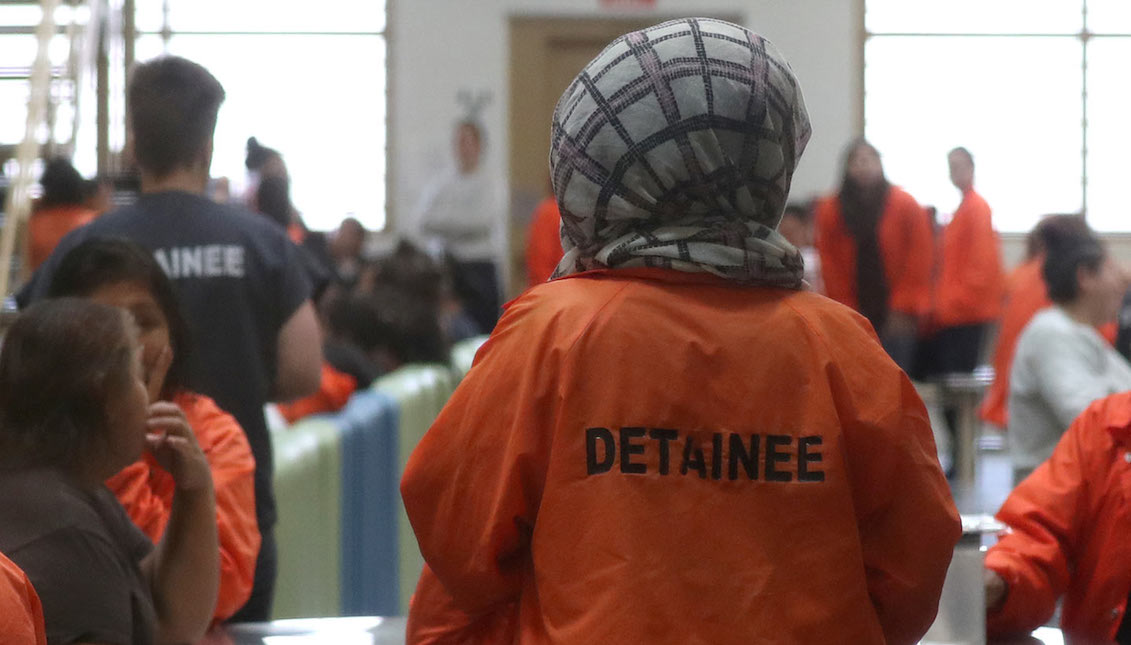
Violence and abuse: The daily life of immigrants in detention centers
The increase of hate crimes in immigrant detention centers has worsened in recent months, following the trend of what people in the U.S. experience on the…
Few noticed the effect that the rhetoric of the Trump campaign and its consequent victory would have on the American collective subconscious.
As the months pass, the legitimization of xenophobic discourse and aggressiveness against foreigners have become commonplace in the daily lives of immigrants residing in the United States, with a 52 percent increase in hate crimes for "Anti-Latino bias" in states such as California, as reported by the Daily Kos.
However, this phenomenon has been transferred to detention centers for undocumented immigrants, where NGOs such as Freedom for Immigrants have been "documenting abuses in immigration detention since 2012," where the group found "at least 800 complaints of abuse motivated by hate or bias in 34 immigration detention jails and prisons" since the inauguration of President Trump.
"At CoreCivic’s Otay Mesa Detention Center in California - where some parents of separated migrant children are also being imprisoned - one individual suffered medical neglect as a result of the prison's medical staff stated dislike of 'illegals' [that] only they come to the U.S. to steal jobs from white people,'" the media outlet reported. "This person was denied pain medication and an x-ray."
Other cases included the destruction of personal papers of transgender detainees, physical and verbal violence, and even the case of "a Muslim man who had been detained for 17 months during which he was denied access to halal food or attending a Religious Service."
The Department of Homeland Security has been aware of the circumstances. As Freedom for Immigrants explained, the office had already received "a total of 33,126 complaints of sexual and/or physical abuse from January 2010 to July 2016,” of which only 0.7 percent (that is, 225 cases) have been investigated as of two years later.
But the rate of violence (inside and outside the detention centers) has increased considerably over the past two years and, taking into account the tacit endorsement that the White House has given to endogenous racism, cases of violence at the hands of Immigration and Customs Enforcement (ICE) agents and prison officials have increased accordingly.
According to The Intercept, during recent months, 1,224 cases have been reported revealing "a staggering pattern of sexual abuse in immigration detention.”
Cases range from physical abuse to threats of deportation if detainees refuse to participate in sexual encounters with guards.
RELATED CONTENT
The reports obtained by the media have been introduced between 2010 and 2017, and suggest that "sexual assault and harassment in immigration detention are not only widespread but systemic, and enabled by an agency that regularly fails to hold itself accountable."
Before the accusations, ICE assured that "all the complaints are investigated," but of them, only 12 percent have been considered "substantiated" to carry out a legal procedure.
With the government's new "zero tolerance" policy, cases have increased not only in number but in the variety of abuse mechanisms.
A report in the Washington Post has described how the hundreds of children separated by their parents after being detained by Border Patrol have been subjected to abuse such as "sleeping with the lights on" or "being kicked in the feet by the guards."
In shelters run by the Department of Health and Human Services, children have described to their attorneys "forced hunger, dehydration and insomnia," as explained Peter Schey, one of the attorneys who has asked the court to appoint a special supervisor.
And for a president who has described immigrants as "animals," the treatment of detainees could not be better.










LEAVE A COMMENT: